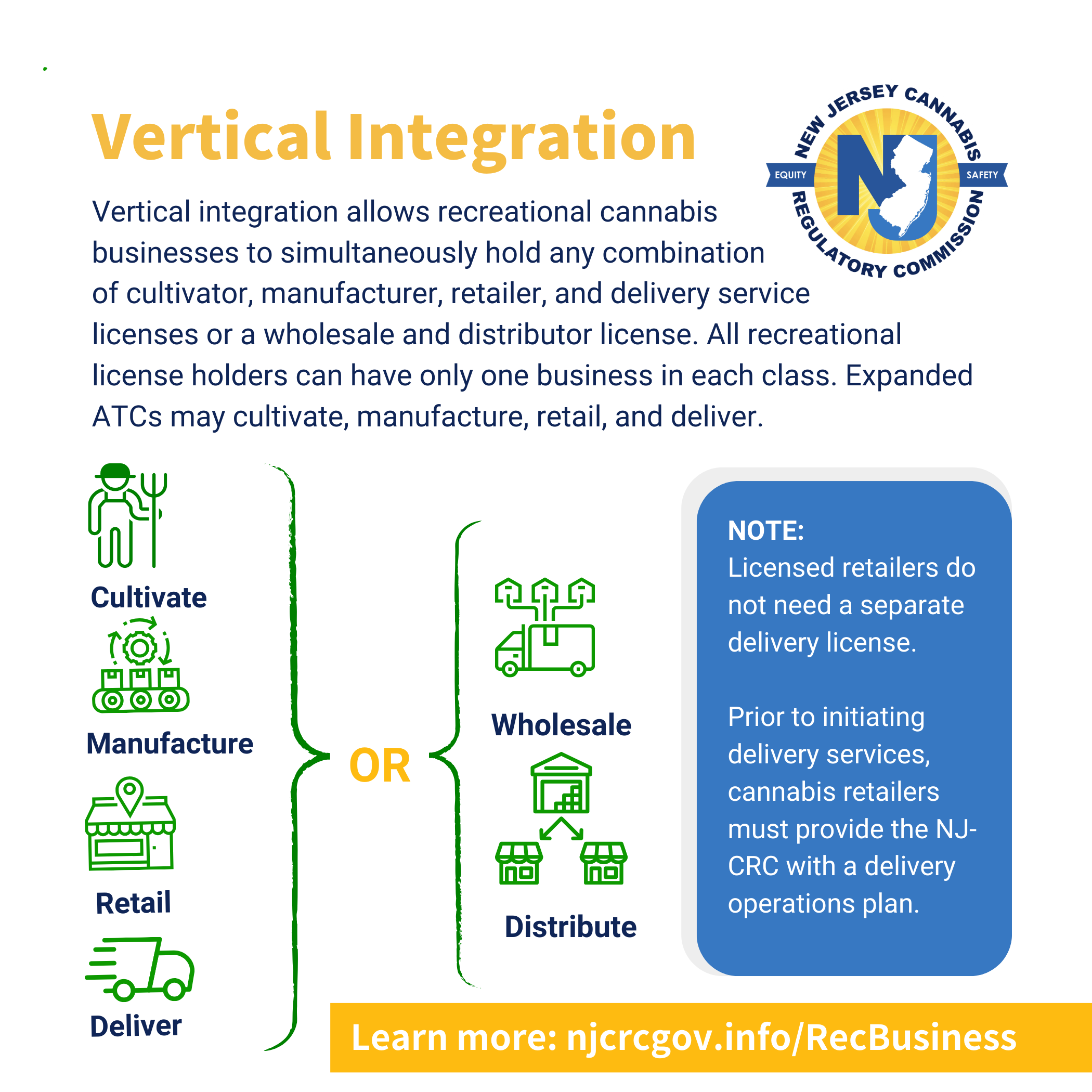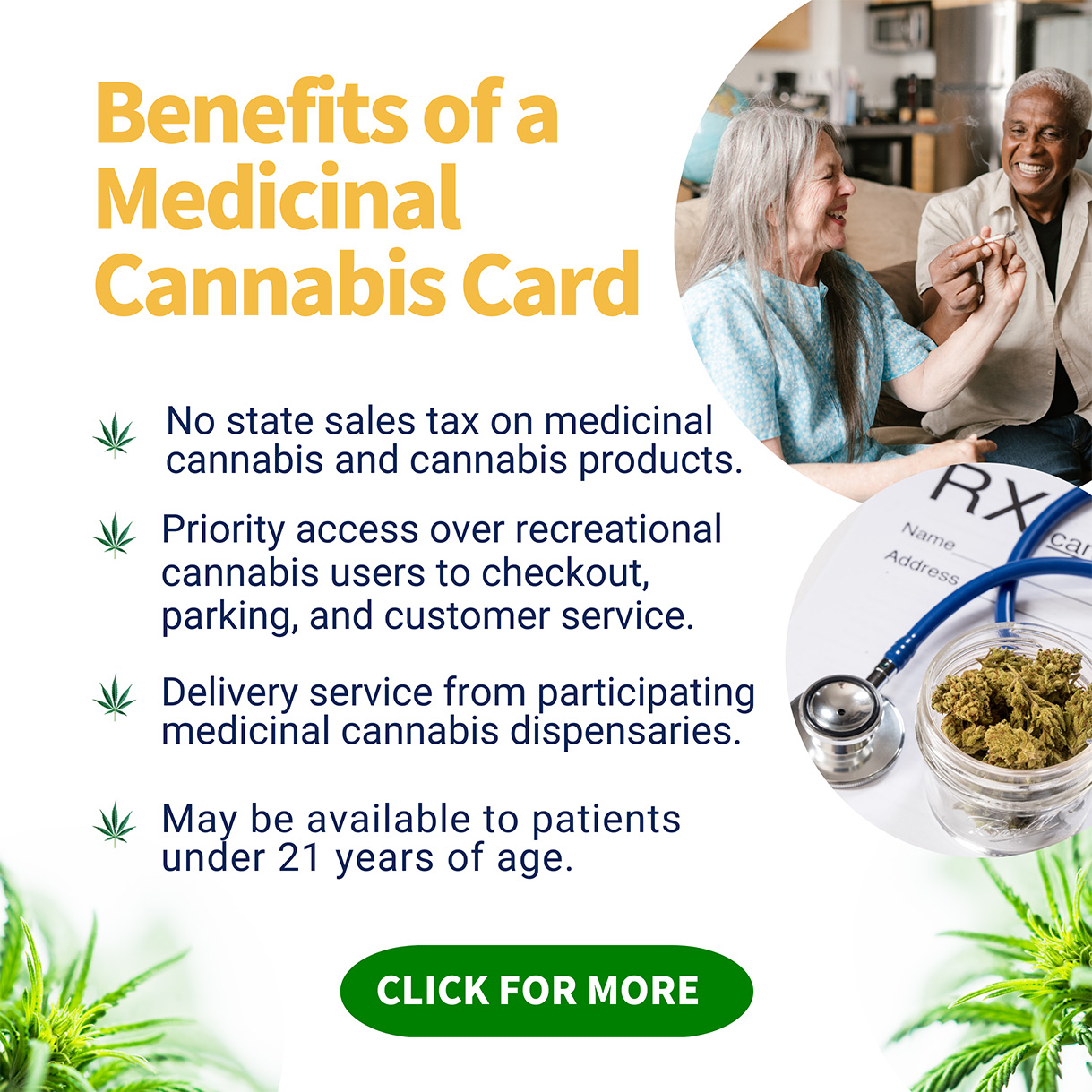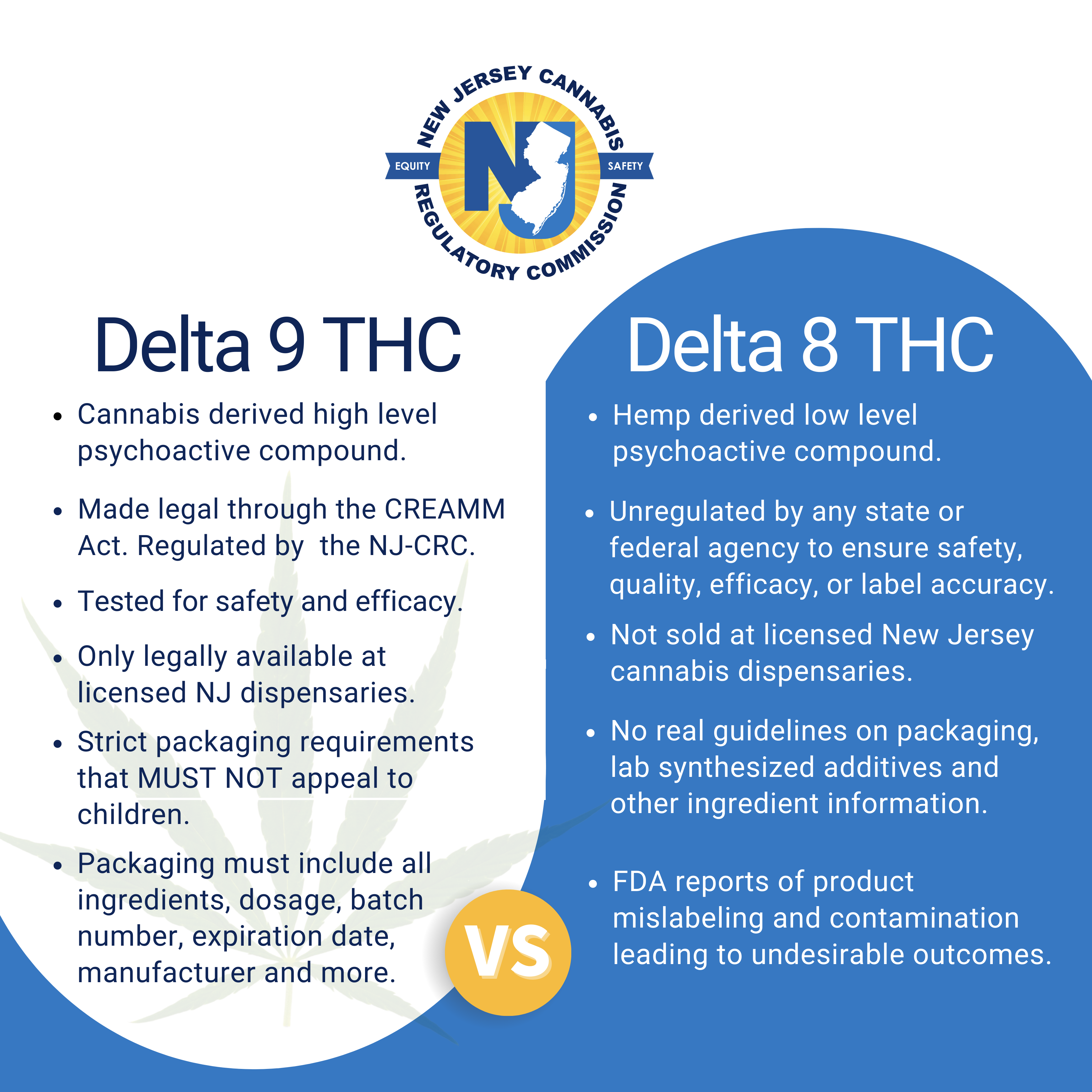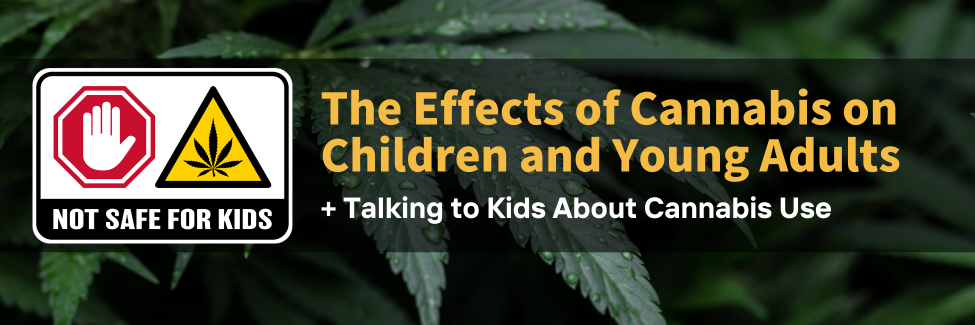
Some of the most severe consequences in the New Jersey Cannabis Regulatory Commission’s regulations are for licensed dispensaries that sell to non-patients under 21 years old. Both the CREAMM Act and the Commission’s regulations were written with protecting children as a high priority. Notably, penalties for providing minors with cannabis aren't just limited to licensed dispensaries. Adults who give cannabis to individuals under the legal age, or help them buy in any way, are also subject to these penalties.
Cannabis use can have short-term and long-term effects on kids and young adults, and its impact can differ from person to person. Here are some key points to consider:
- Brain development: The brain undergoes significant development during adolescence and continues until the mid-20s. Cannabis use during this period can potentially interfere with this development, affecting memory, attention, and cognitive abilities. According to a study summarized on Psychology Today, individuals who start using cannabis regularly at a young age and continue into their late thirties may experience long-term brain damage and a decline in IQ by up to eight points.
- Impaired learning and academic performance: Frequent cannabis use among young individuals has been associated with reduced academic performance, impaired learning, and lower educational attainment. Studies conducted in Australia and New Zealand found that young individuals who frequently used cannabis were less likely to complete high school or attain a degree than their peers who did not use cannabis.
- Mental health risks: Cannabis use, especially frequent and heavy use, may increase the risk of mental health issues such as anxiety, depression, and psychosis in individuals predisposed to mental health conditions. According to a study by Cambridge University, this risk is particularly heightened for young males who have cannabis use disorder.
- Increased substance use: According to the National Institute on Drug Abuse, adolescents ages 12 to 17 who try cannabis or misuse prescription drugs for the first time are more likely than young adults 18 to 25 years old to develop a substance use disorder.
- Long-term adverse effects: Using cannabis before age 18 can lead to Cannabis Use Disorder as you age. Cannabis Use Disorder (CUD) is marked by withdrawal symptoms such as decreased appetite, cravings, restlessness, irritability, mood, and sleep difficulties. Research shows that CUD is more common in individuals who start cannabis use at a young age. In addition, long-term cannabis use can lead to a condition known as Cannabis Hyperemesis (CH) or Cannabis Hyperemesis Syndrome (CHS). CHS is characterized by intense nausea, vomiting, and stomach cramps, which can only be relieved by quitting cannabis.
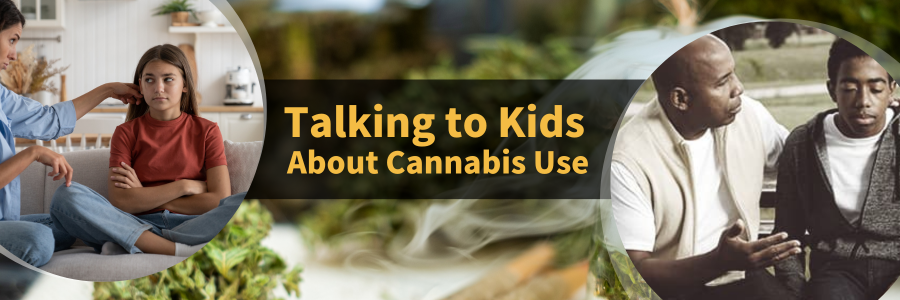
Children and young people are enticed to use cannabis for various reasons, like peer pressure, boredom, or curiosity. Parents play a crucial role in educating their children about the potential risks and consequences associated with cannabis use. Here are some tips for talking to kids about cannabis:
Be a role model: Your behavior and attitudes toward cannabis will influence your child's perception. If you use cannabis for medical or recreational purposes, buy it from a legal dispensary, store it safely, and discuss it openly and honestly. Model responsible use for adults while emphasizing that it is inappropriate for individuals under 21.
- Be informed: Educate yourself about cannabis and its effects. Also talk to your kids about Delta-8 THC which is derived from hemp. Kids may believe it is safe since Delta-8 products can be easily found in convenience stores, smoke shops, and gas stations. Products are, however, unregulated and very often unsafe.
- Initiate the conversation: Don't wait for your child to approach you about cannabis; take the initiative to discuss it with them. Use opportunities such as news articles, movies, or TV shows that involve cannabis to start the conversation.
- Encourage critical thinking: Teach your child to question the information they come across, especially on the internet and social media, where cannabis-related content might be prevalent. Help them develop critical thinking skills to evaluate the reliability and accuracy of sources.
- Set clear expectations and boundaries: Establish family rules regarding cannabis use and make sure your child understands your expectations. Reinforce the message that you prioritize their health and well-being.
Remember that open and ongoing conversations about cannabis and other substance use are essential. Regularly check in with your child, answer their questions, and address any concerns they may have.
DISCLAIMER
The information presented in this blog post is for informational purposes only and should not be used as a substitute for professional medical advice, diagnosis, or treatment. Seek advice from your physician or other qualified healthcare provider if you have any questions about a medical condition or incorporating cannabis into your treatment. Do not ignore professional medical advice or delay seeking it due to anything you may have read on this website.
Previous Blog Posts

Tips for SMART Gatherings This Holiday Season
11/26/2025
The holidays are a time for food, fun, laughter, and connecting with the people who make life sweeter. And as more adults in New Jersey choose to enjoy, or gift legal cannabis during the season, the NJ-CRC has launched its second safe-use campaign, S.M.A.R.T., to help keep celebrations (relatively) stress-free. S.M.A.R.T. is an easy way to remember the basics of responsible cannabis use, especially when travel is constant, roads are chaotic, homes are busy, and curious little ones are wandering.
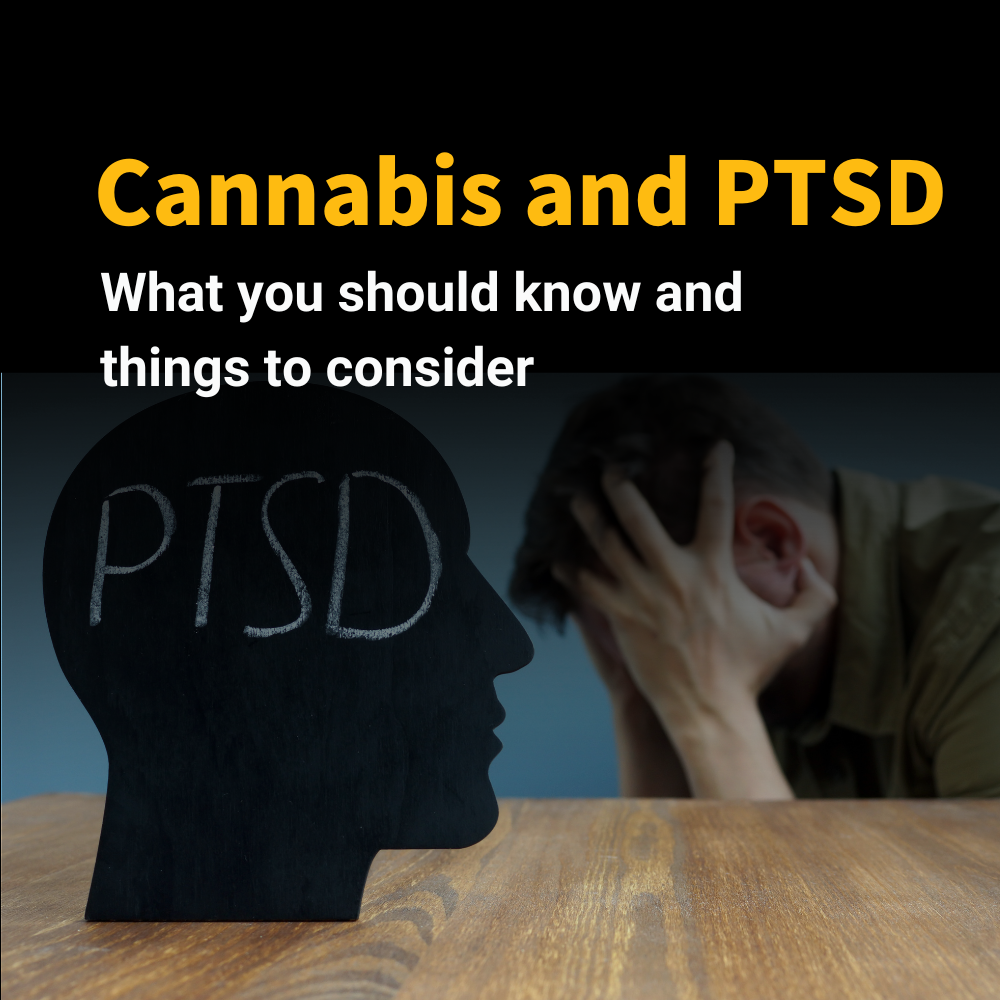
Cannabis and PTSD
09/23/2025
Post-traumatic stress disorder (PTSD) is a mental health condition that can happen after someone has lived through distressing or life-threatening events. People with PTSD may have disturbing flashbacks, nightmares, or be overly guarded. It can cause trouble sleeping, mood swings, or disruptions to daily life. This mental health condition is the third most common condition participants in New Jersey’s Medicinal Cannabis Program are treating with cannabis Many patients, including veterans, turn to cannabis when other treatments are not enough or don't work.
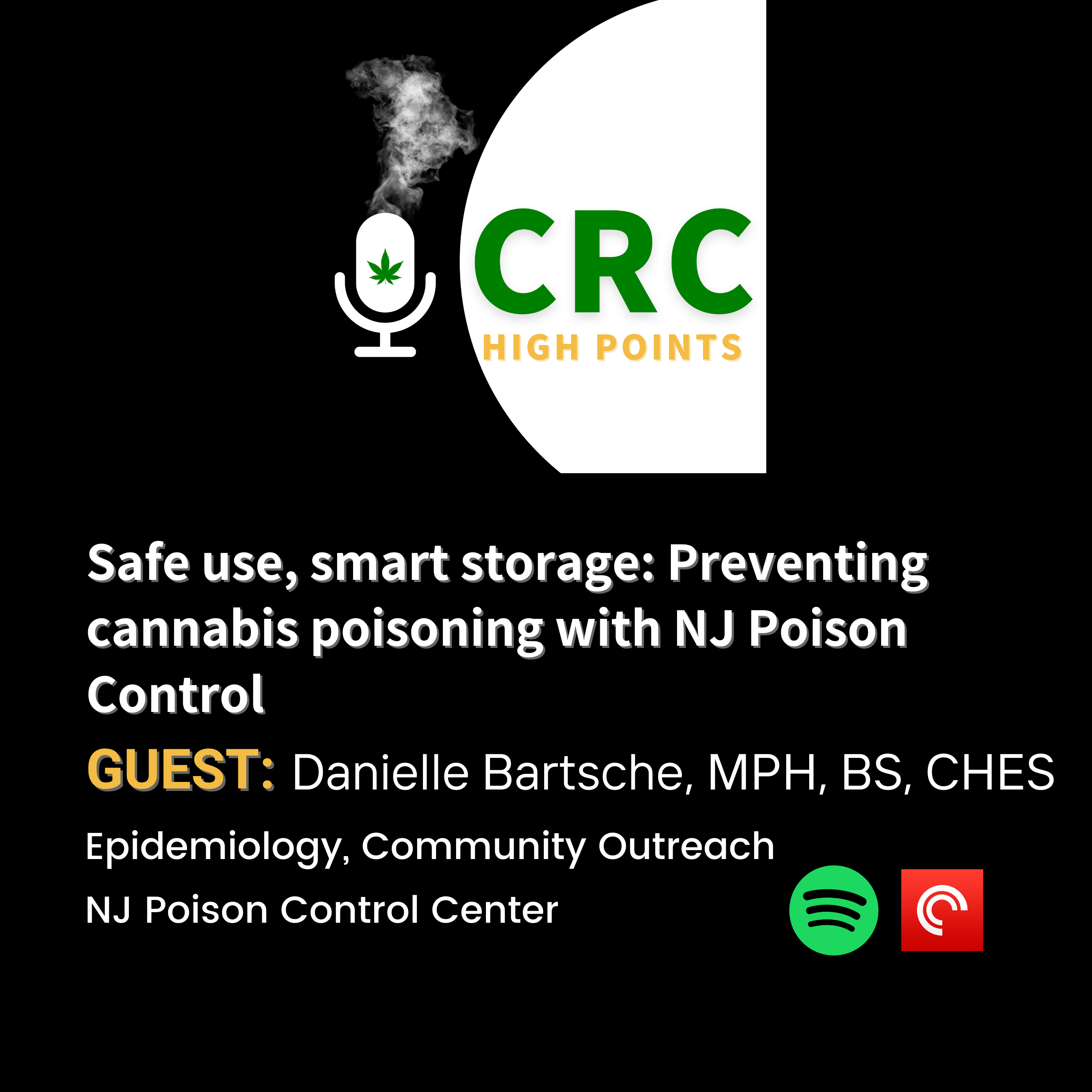
Safe use, smart storage: Preventing cannabis poisoning with NJ Poison Control
09/5/2025
In this episode of High Points, Danielle Bartsche, MPH, BS, CHES, who focuses on epidemiology and community outreach for the New Jersey Poison Control Center, discusses how cannabis poisoning can affect adults, children, and pets, what symptoms to look out for, and what steps to take if an overdose is suspected. Danielle also highlights how New Jersey’s packaging requirements, consumer education, and the availability of Poison Control support are helping to reduce risks and promote responsible cannabis use.
 Official Site of The State of New Jersey
Official Site of The State of New Jersey
